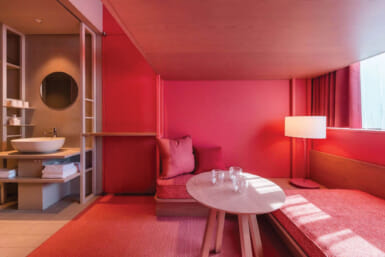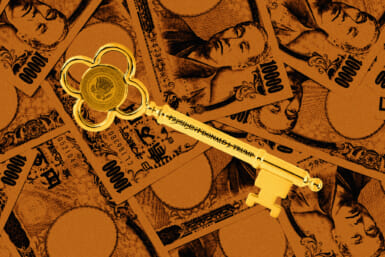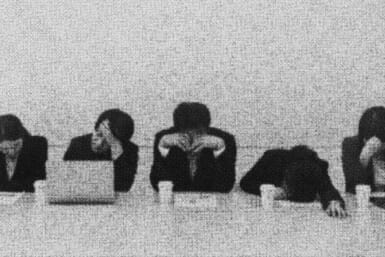Do you want the Prophetic Message?” the waitress asks, handing me a menu. Coffee costs ¥800 here at Yogen Cafe, but it comes with complimentary biscotti, a short Christian prophecy, and no seating charge. So in a way, it’s getting value for your money through the sides.
The interior is predominantly red and white. There’s an exposed brick wall on which a large white cross has been mounted. Pour-over coffee pots, percolators and coffee table books line the shelves at the entrance. On each table is a small book espousing the cafe’s doctrine using that same minimal color scheme, which in book form shares a certain resemblance with the artwork from Takashi Miike’s film Love Exposure.
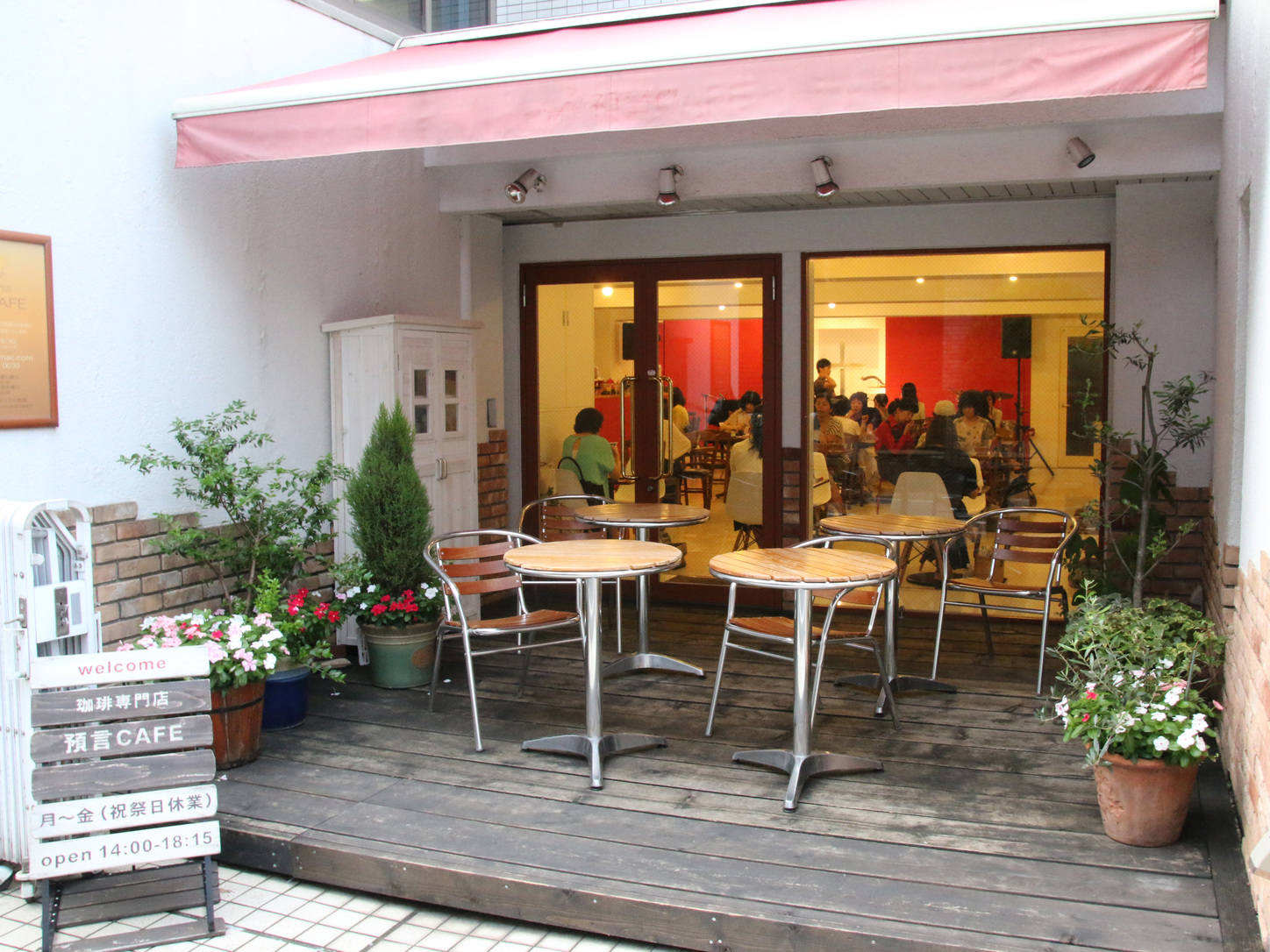
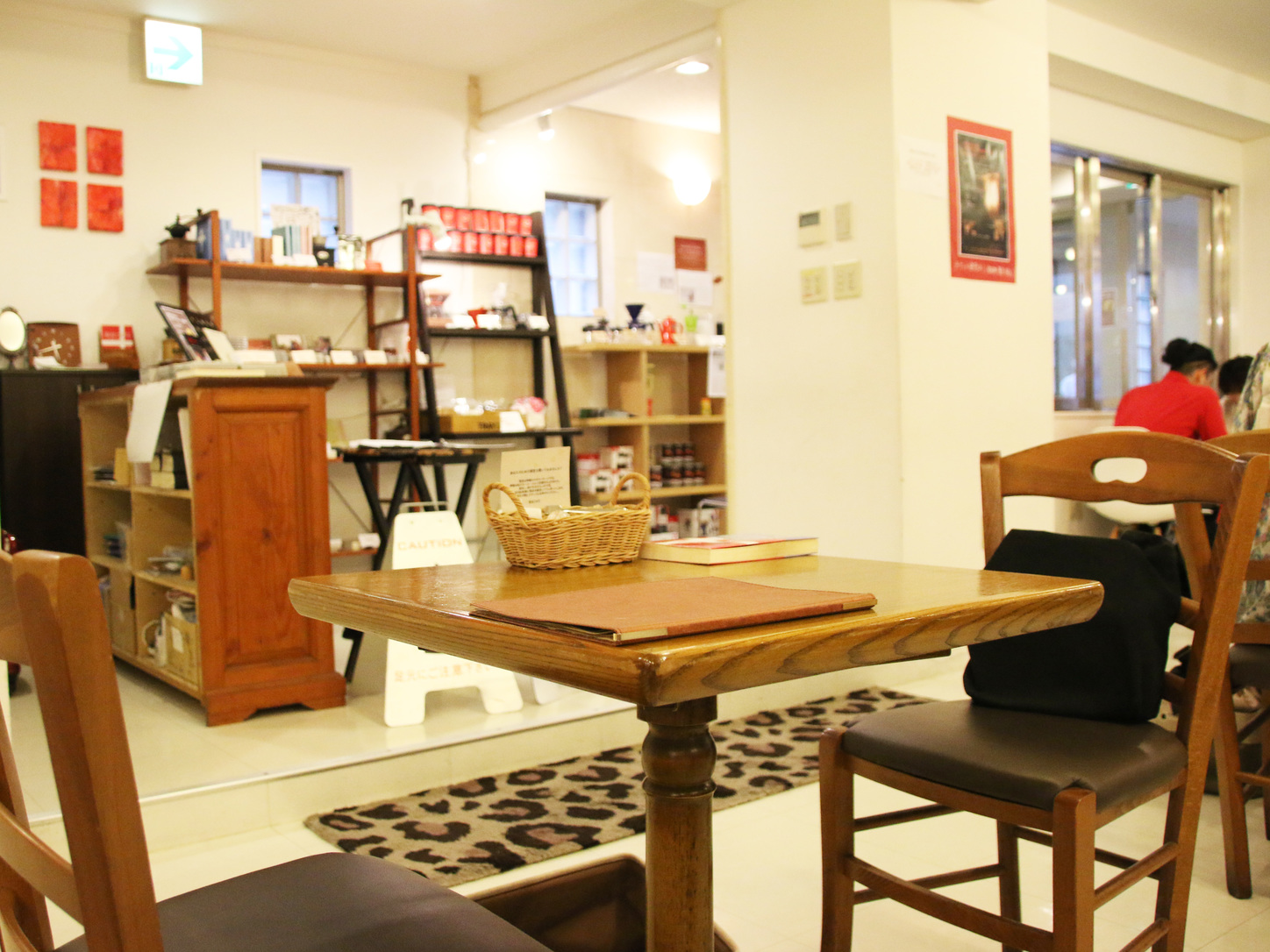
Stowed away on a foodie street in the Minato district of Tokyo, by all accounts was it not for the crucifix, Yogen could pass for any standard coffee house. Its customer base ranges from housewives to business folk, most of whom are not here for a social call. Likely they are here because it gives a coffee break dual functions: caffeine and self-improvement.
Many customers come alone. Company is provided upon arrival in the form of a staff member who joins you as the orders are served. The customers sit and listen intently to the wait staff who begin muttering quickly into various recording devices. Prophesizing softly, the diatribes are barely audible over the sound of a gentle operatic aria playing and the regular grinding of beans.
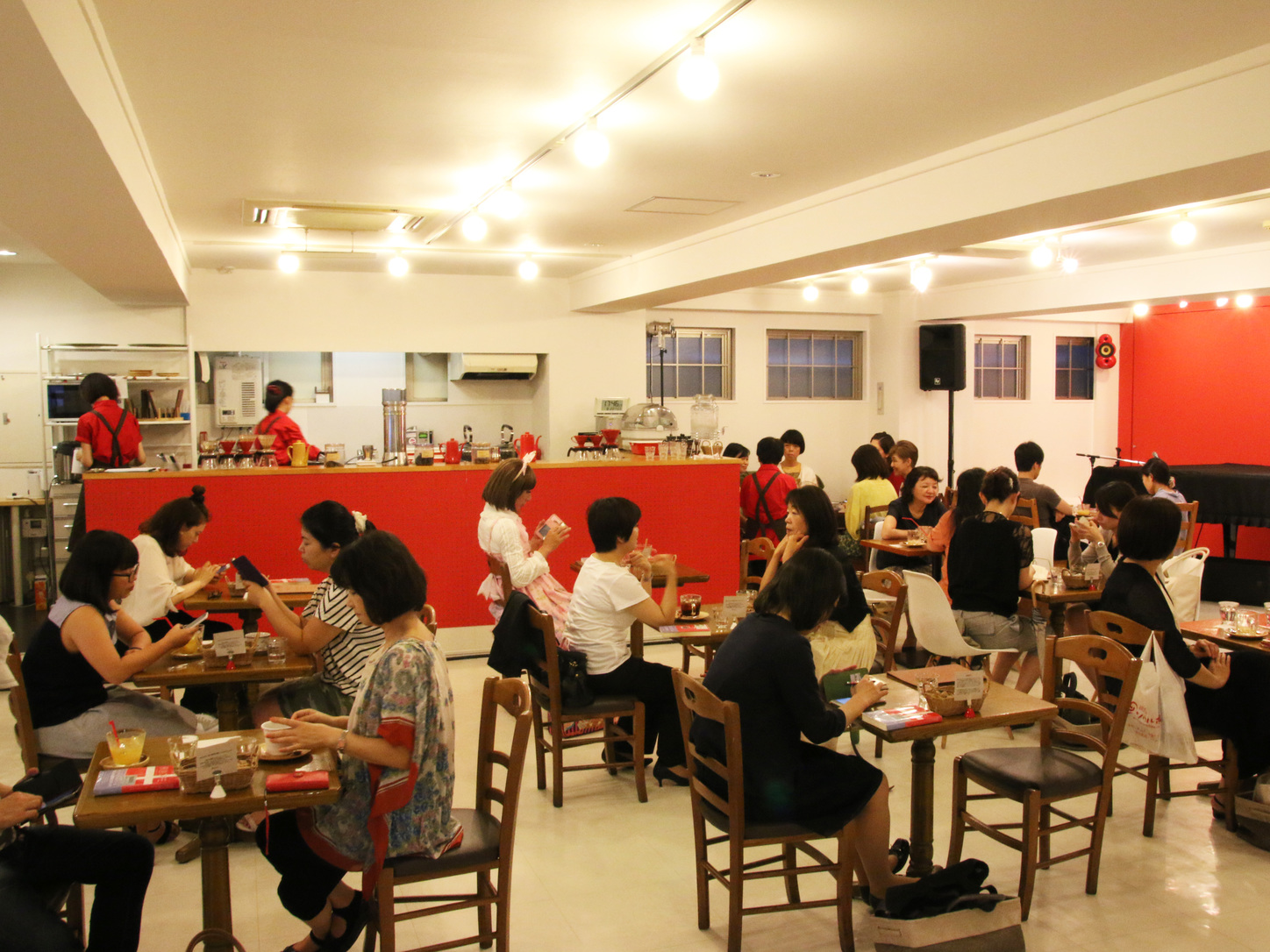
As the waitress returns with my coffee, she takes a seat, clasps my phone in both hands and starts chanting. “The Lord said, ‘This is a new season for you. The old cycle is broken. The new cycle is coming. You don’t need to struggle any more. Give me your burden, your problems.’”
For three minutes, she talks uninterrupted. “I am going to give you new territory to take over. You have a great business prospect. Don’t think that you are small. You can imagine your territory in Japan or overseas. I will give you whatever you want. I am going to give you the new strategy, you are a pioneer,’ said the Lord.”
This is not coming from any recognizable Biblical passages. In a sense, it feels like a form of Christian-based fortune-telling akin to how, in the West, Buddhism is co-opted and cherry picked for its more favorable aspects by those who identify as spiritual, but resist organized religion.
The majority of the clientele are “non-believers,” the waitress says. “They are not satisfied spiritually. They are hungry. They are thirsty.” Whether the café actually succeeds in creating converts though, she is uncertain. However, through meticulous book-keeping, as all customers are required to sign in prior to entry, the owners do pride themselves on the fact that most people tend to return several times. Assuming conversion is the general end-game, then the café is remarkable in how logically it has approached the task of tackling the dwindling Christian population in Japan today, estimated at one percent, or half what it was in the 1990s.
This vision of merging consumerism and conversion stems from the mind of Kazuyo Yoshida, the café’s main prophet. Churches are too closed off for Japanese people to feel comfortable approaching is her main argument, but “they ought to consider this faith since Japanese people have the right emotions for Christianity.” They are apparently far too enamored by “spiritualism,” an umbrella term she uses to refer to Buddhism, Shintoism, fortune-telling and crystal healing.
“Almost all Japanese people go to some kind of fortune teller”
“Almost all Japanese people go to some kind of fortune teller. Some people think the Lord’s prophecy is like spiritual stuff, but after they receive our prophecy, they gain a different understanding about what spirituality is.”
There is a story circulating on a website run by Ron Sawka, the leader of the Arise 5 church under whom Yoshida set up her café, claiming that at one point several fortune tellers entered one of the coffee houses. So impressed were they by the prophecies that they urged their own clients to pay a visit. “These people gave their lives to spiritualism. Then they came here,” she says looking around. “Now they are at peace.” Some joined the church. A few were hired as staff. “It is not so unusual,” she adds with matter-of-fact pride.
Born in Kyushu and raised a Buddhist, Kazuyo was baptized at the age of 23 in 1987 with her husband. In 1995, she was ordained as a minister, and thereafter she began working with Ron Sawka. “I live in Tochigi, but Ron wanted our church to be in Tokyo too.” The café was conceived during this period as a result of two separate events. The first was a seminar that Kazuyo spoke at in Okinawa during 2002. “I was giving the prophecy. A few people said their friend or family member couldn’t come. So they asked if we could meet and do it in a Starbucks.” Agreeing, the results proved positive. “Then, I asked non-Christian people on the streets if they want the prophecy and they were so happy with it too.”
Upon returning to Tokyo, “the lease on the building where I had my church ended. So I needed to leave for a new place.” Considering the success of the Starbucks sessions, she came up with the idea for the café-church.
Pitching her idea to Sawka, who saw nothing in the Bible that denounced coffee, they went ahead with it and started on a sound footing. This, she credits to her parents. “They were in the restaurant business, so I knew about coffee.”
The café in Akasaka was the first to open. “On day one, there were three people. Then five. Then 50 after some media people came.” Once those numbers continued growing, a larger space was required and a shop in Shinjuku was arranged.
Sitting in said branch, with in excess of 50 customers and not a single table left unoccupied, I ask again why a prophetic café could have such success in attracting non-Christians. “I cannot say I am the light, but I breathe the Bible,” Kazuyo replies. This, she believes is what impresses the customers and opens them up to Christianity. At the same time, such a statement could be made by any preacher. What she also has on her side is good service and a blessed reimagining of the age-old policy, “the customer is always right.”
“If the customer isn’t happy, that’s not God. That’s me. When people ask ‘How do you know my situation?’ I say ‘I don’t know. That is from God’ and they say, ‘that is the good stuff.’”
For more information visit yogencafe.com


